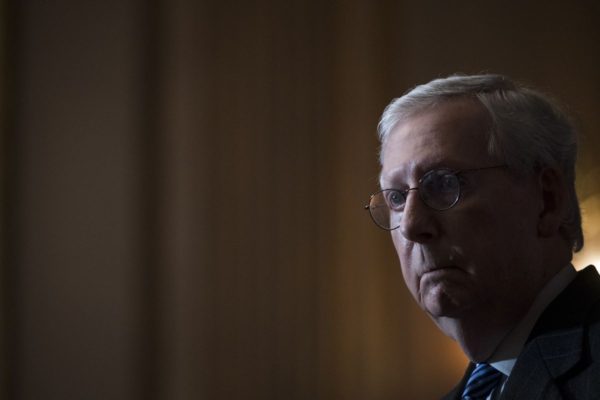
Because a website like The Underground Bunker can only exist because of Section 230, Scott Pilutik’s take on current legislation seems especially important.
Tonight is a busy night in Covid Relief Legislative Theater, so I’ll try to briefly summarize because it’s a bit confusing.
A Covid-relief bill has already passed, and was signed by the president. Among other things, it accounted for $600 stimulus checks.
Long after that bill was negotiated, at which negotiations his administration worked with GOP leaders to cap stimulus checks at $600, Trump, for whatever Machiavellian reason, evidently decided that the Democrats opening negotiating position of $2,000 stimulus checks was better and publicly advocated for it.
House Democrats, calling Trump’s bluff, passed a bill (with significant GOP support) to increase the stimulus check amount to $2,000.
Mitch McConnell, after earlier refusing to hold a vote on the issue (likely fearing it would pass), tonight countered by introducing a bill to increase the stimulus check amount to $2,000 … AND … repeal Section 230 of the Communications Decency Act, which repeal Trump would surely love, until he eventually came to understand that a repeal of section 230 would result in his tweets being removed on a daily basis.
McConnell doesn’t have the votes to repeal Section 230 even among Republicans, so this is really just a bad faith attempt to give cover to GA senators Perdue and Loeffler, who can now appear to support $2,000 stimulus checks without the possibility of that actually occurring.
I’m going to briefly explain why Section 230 isn’t going anywhere.
Prior to 230’s enactment there was a lot of uncertainty about secondary liability for websites–are they publishers? Or are they like public utilities? The answer in early court cases relied on distinctions between the degree of involvement of the site operator in content moderation, distinctions that courts were clearly wary of making.
Section 230 was passed to make it easier on courts by dissolving the distinctions between service providers like Verizon and content deliverers like Facebook and Twitter. They’re all merely “online service providers,” not liable for what its users post (with some exceptions not worth getting into right now). You have a problem with something someone tweeted? Sue that person, not Twitter.
Emboldened by the ensuing certainty around secondary liability, the web flourished. Our economy is now heavily dependent on the web, and Section 230 deserves some credit for that.
Without Section 230, nearly every website on which content is published (where even mild moderation takes place) would overnight become secondarily liable for everything published there. Those sites would instantly become hair-trigger censors, deleting content and accounts that anyone deemed controversial.
This would be a monumental sea change in the law governing the internet, almost as if McConnell had tethered his stimulus check increase to a law dissolving the EPA. McConnell isn’t oblivious to the ripple effects repealing Section 230 would cause, he’s simply using it as a poison pill, knowing full well no one except Trump actually wants to repeal Section 230.
The big irony here is that for all his complaining about Section 230, Section 230 is why Trump’s worst social media content is permitted to exist at all. In Trump’s petty mind, he sees Section 230 as preventing him from using lawyers to threaten Facebook and Twitter to get what he wants. But repealing 230 would result in Facebook and Twitter becoming instantly far more risk averse and censor-heavy, and his content would suffer the axe more than most.
Envisioning an internet without Section 230 is largely academic, though, because it’s not going to be repealed. Everyone except Trump, and perhaps even Trump, understands this. But I doubt many voters do, which is why we’re being subjected to this moronic charade.






